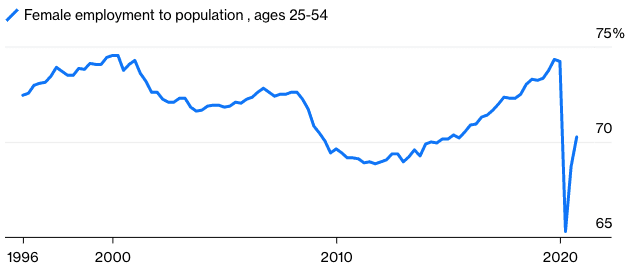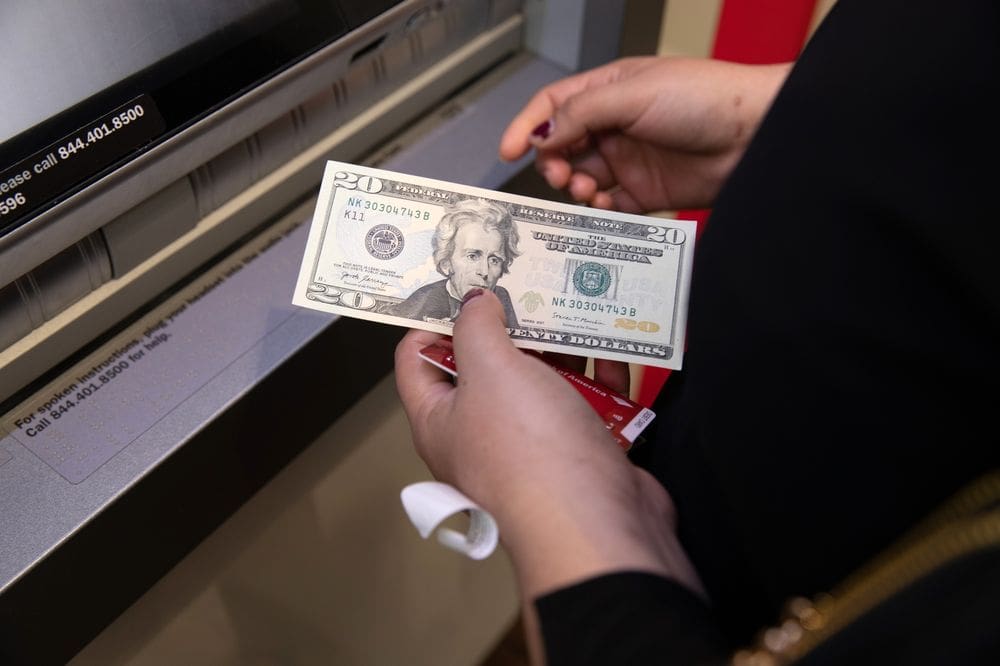For too long people in need have been stereotyped as lazy and dependent. Cash payments give them the breathing room to chart a better life course.
Opinion by Noah Smith
Biden’s $1.9 trillion Covid-19 relief bill has passed the Senate, clearing the way for it to become law. Much of the legislation is dedicated to handing out cash to individual Americans. This is a sign post for a tectonic shift that’s underway in U.S. policy thinking toward unconditional money transfers as the optimal way to help people in need.
When I was a kid in the 1980s and 1990s, everyone was talking about “a hand up, not a handout.” This was the mantra of workfare—the idea of using government programs to incentivize labor and self-betterment.
In 1996, President Bill Clinton signed the Personal Responsibility and Work Opportunity Act, which turned the old Aid to Families with Dependent Children welfare program into a state-administered block grant with work requirements. Meanwhile, the flagship next-generation welfare programs touted by economists and so-called “third way” reformers were the Earned Income Tax Credit and the Child Tax Credit, which only give people money if they also manage to earn some income for themselves.
A quarter century later, America is reevaluating this approach. One reason is that workfare just didn’t seem to be that effective. Mothers were the main group who were supposed to be pushed toward work by welfare reform and the EITC-style programs.
But more than two decades later, the prime-age employment-to-population ratio for women is basically the same as in 1996:
Not Working Out So Well
Job-focused welfare reform hasn’t done much to improve women’s participation in the workforce.

In a recent paper, economist Henrik Kleven reviewed the evidence that EITC encourages work, and found it was pretty shaky. It seems that the old saw that welfare recipients choose to live off of government benefits instead of getting a job was never particularly accurate, and instead the number of people who work is mainly limited by the available job opportunities.
In fact, evidence is starting to pile up in favor of cash transfers. A 2018 literature review by Ioana Marinescu finds that various unconditional transfer programs tend to boost incomes, as well as health and education. And despite the widespread belief that welfare benefits encourage people not to work, that outcome appears small. For programs that give out cash unconditionally — like the payouts from the Alaska Permanent Fund, which distributes natural resource revenues to the people of Alaska — the reduction in employment is negligible.
In fact, some new evidence shows that unconditional cash handouts might even encourage work. In a recent experiment, some philanthropists randomly selected 125 residents of poor neighborhoods in the city of Stockton, California, to receive $500 a month in cash. Instead of working less, the people who got the cash actually worked more!
This result dovetails with a new understanding of how poverty keeps people down. The old theory that poverty is caused by a culture of dependency just doesn’t seem to hold water. Instead, poor people seem to be weighed down by a whole host of small risks and hassles. Those day-to-day difficulties make it very hard for poor people to better their situations; to go to school to become a nurse instead of a cashier, to move to a better neighborhood, to look for a better job. Instead of working on their futures, poor people are trapped by the need to pay the bills of the moment.
In this theory, cash helps boost people out of poverty by helping them fend off daily troubles; by greasing the wheels of life and giving them a cushion against risks. Helping them afford the essentials provides more breathing room to think about the next step in life.
Interviews with the Stockton residents who received the $500 a month spent it almost entirely on necessities like food and utilities. In interviews, they reported feeling more confident, engaged and entrepreneurial — which fits with the observation that they were more likely to go get full-time jobs. It also fits with the substantial body of evidence that a strong social safety net encourages people to start more businesses.Opinion. Data. More Data.Get the most important Bloomberg Opinion pieces in one email.EmailSign UpBy submitting my information, I agree to the Privacy Policy and Terms of Service and to receive offers and promotions from Bloomberg.
In other words, a handout, more often than not, is actually a hand up. This realization is fueling a growing consensus that cash benefits are the way forward for the U.S. Popular books and political campaigns are starting to advocate universal basic incomes. Think tanks like the Washington Center for Equitable Growth, with strong ties to the Biden administration, are advocating more cash benefits as the first line of defense against poverty.
And the Biden administration is listening. The new Covid relief bill — poised to be the administration’s first major legislative success — has no less than five major cash-transfer programs.
These include $1,400 checks to Americans making up to $75,000, an additional $300 a week in unemployment benefits through Sept. 6, and assistance for rent and health care.
But most importantly, the bill includes a child allowance of $250 to $300 a month per child (depending on age). That adds up to $6,000 a year for a family with two kids older than age 6 — a very substantial boost to income. And it comes with no work requirements. If the benefit becomes permanent after this year, as many expect, it will transform the U.S. welfare system.
That’s a good thing.
For too long, low-income Americans have been forced to scrabble constantly just to stay afloat, denied cash by politicians who stereotype them as lazy and dependent.
The new child allowance will give them the breathing room they need to work for a better tomorrow. And it will serve as a test run for even more unconditional cash programs, like a universal basic income. When it comes to boosting people out of poverty, it seems that cash really is king.
_____
Noah Smith is a Bloomberg Opinion columnist. He was an assistant professor of finance at Stony Brook University, and he blogs at Noahpinion.
To see original article please visit: https://www.bloomberg.com/opinion/articles/2021-03-09/covid-relief-cash-may-be-the-welfare-of-the-future




















